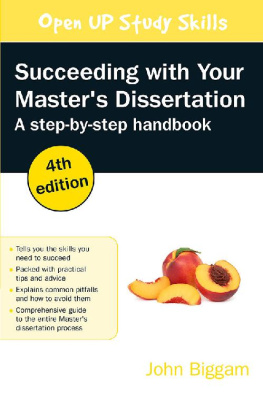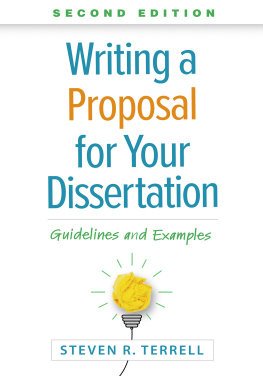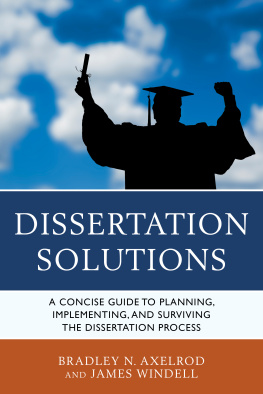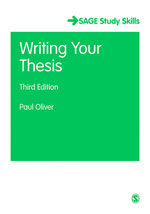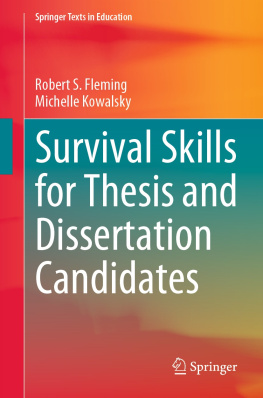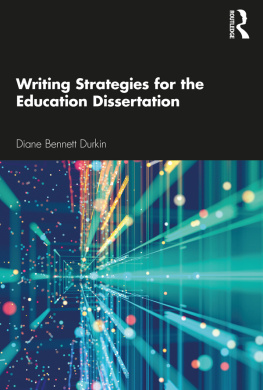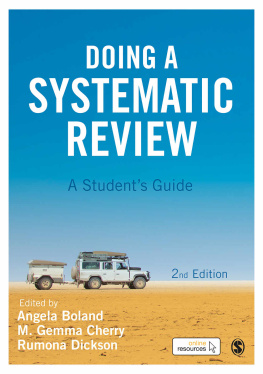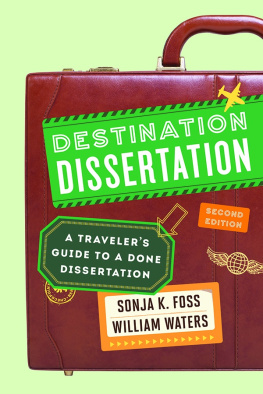
Open University Press
McGraw-Hill Education
8th Floor, 338 Euston Road
London
England
NW1 3BH
email:
world wide web: www.openup.co.uk
and Two Penn Plaza, New York, NY 10121-2289, USA
First published 2008
Second edition published 2011
Third edition published 2015
First published in this fourth edition 2017
Copyright Open International Publishing Ltd, 2017
All rights reserved. Except for the quotation of short passages for the purposes of criticism and review, no part of this publication may be reproduced, stored in a retrieval system, or transmitted, in any form or by any means, electronic, mechanical, photocopying, recording or otherwise, without the prior written permission of the publisher or a licence from the Copyright Licensing Agency Limited. Details of such licences (for reprographic reproduction) may be obtained from the Copyright Licensing Agency Ltd of Saffron House, 610 Kirby Street, London EC1N 8TS.
A catalogue record of this book is available from the British Library
ISBN-13: 978-0-335-24321-1
ISBN-10: 0-33-524321-5
eISBN-978-0-335-24322-8
Library of Congress Cataloging-in-Publication Data
CIP data applied for
Typeset by Transforma Pvt. Ltd., Chennai, India
Fictitious names of companies, products, people, characters and/or data that may be used herein (in case studies or in examples) are not intended to represent any real individual, company, product or event.
This book is a really excellent and friendly guide through the Masters dissertation process. It is clearly and engagingly written and easily understandable to a student. It also guides students gently from a general understanding in the first chapter, down to a significant level of detail in each subsequent chapter with worked examples and relevant practical tips. It also usefully highlights common mistakes. The book presents a realistic view of undertaking a Masters degree, presenting the generic skills needed for success and acknowledging that life outside the dissertation is complex, messy, and can sometimes get in the way!
It is particularly useful and relevant to my students as, unlike many other books on this topic, it does not ignore practice-based forms of research, in fact the book includes a substantial chapter on practice-as-research in the creative disciplines. This chapter includes software alongside creative arts and is therefore particularly suitable for inter- or multi-disciplinary postgraduates using technology to enhance their existing understanding of a subject (or their practice) through research.
I also really like the fact that the chapter on Abstracts is at the end (where it belongs!) and that students are explicitly told to write it last no matter how many times I tell my students this, it is a common and recurring mistake!
Daisy Abbott, School of Simulation and Visualisation, The Glasgow School of Art, UK
The dissertation component of a Masters programme can be very daunting for students. In this book John Biggam demystifies both the concept, and process of a dissertation. Biggam clearly explains the different parts of a dissertation, and offers a pragmatic structure which can be used by students to help frame their ideas. Also, the guidance given in the book is written in a reassuring tone which is never patronising. The summary on good practise in dissertation writing should be particularly useful during the planning stage, and as a final check for students.
Dr Donna Murray SFHEA, Head of Taught Student Development, Institute for Academic Development, The University of Edinburgh, UK
This book is dedicated to:
The memory of Hugh Higgins. Shug taught trade union studies at Stow College, Glasgow and, above all else, he knew the value of education.
APPENDICES
The author once again touches his hat in recognition of the part played by students in the creation of this book.
Chapter | | 
|
Introduction
A Masters dissertation: what is it? So, what skills do you need to succeed? Developing your i-skills Using social media in research Watch your words! How to use this book Further reading Summary of key points
This chapter fleshes out the meaning of a Masters dissertation, including the generic and specific skills required to complete one (i-skills, in particular, are explored), provides examples of how to exploit social media for research purposes, and underlines the need to keep to your universitys prescribed word-limit. How the book is structured is also explained.
A Masters dissertation: what is it?
A professor was approached by one of her students, who enquired: Is it all right to put bullet points in an essay? Another student queried: When you say you want journal articles, how many? The academic was disappointed that her students required their assessment criteria to be explained in such minutiae (Wojtas, 2006, p. 2). What may appear trivial to a dissertation supervisor can be a source of concern to you, the student. A Masters dissertation traditionally consists of the production of a substantial piece of written work of about 15,000 words. On the other hand, practice-based dissertations, favoured by Art and Drama Schools, normally involve the submission of a created art form such as, for example, a ceramic piece, a musical score or a dance performance, alongside critical commentary of roughly 7,500 words. Irrespective of the type of dissertation you will be submitting traditional or practice-based it is likely that this is the first time you have encountered such a task. Therefore, it is important that you understand fully what is required of a Masters dissertation student and, equally, how to manoeuvre safely through the dissertation journey, from grasping an overview of the main phases of writing a dissertation (submitting your dissertation proposal, clarifying your research objectives, writing the Literature Review, etc.) to the finer detail of composing the content for each of these phases. This book provides in-depth guidance on how to complete your dissertation, thus meeting the needs of students eager for practical assistance in this commonplace, but challenging, mode of assessment.
Dissertations have always been a problematic area for students. Students registered for a taught Masters programme not only have to cope with their core subject areas, but they are also required, largely through independent study, and within tight time constraints, to complete a substantial dissertation project. Students registered for a Masters by research , although they have no taught element to contend with, often find the dissertation process equally stressful. For many Masters students, their venture into the world of the dissertation becomes nothing short of a guessing-game, where the tasks to be completed are difficult to comprehend, and where the final mark awarded for their efforts can be even trickier to fathom. Students are aware that they have to write an Introduction , but they are not really sure how to go about it; they sort of know that they have to complete something called a Literature Review , but they are at a loss where to start or what it ought to contain, or what will get them good marks; the section on Research Methods (necessary if students are implementing their own practical research work to complement their Literature Review) seems so abstract to them, and concepts such as positivism and phenomenology, so revered by some supervisors, do not help matters; and so on.
Next page
